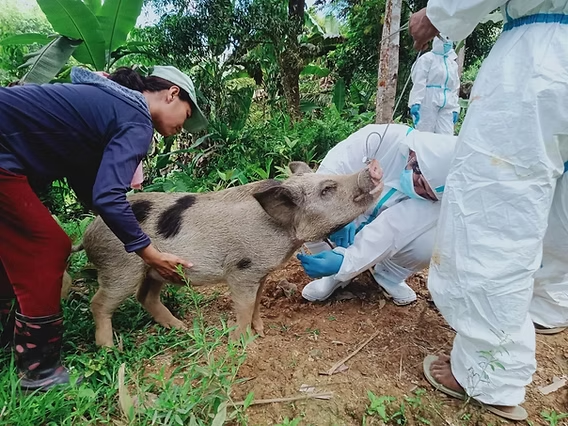
Stakeholders across Ivory Coast’s pork industry have united to tackle the ongoing African swine fever (ASF) crisis, adopting reinforced measures designed to halt the spread of the highly contagious viral disease and support affected farmers.
Between July 9 and 11, representatives from breeder associations, the interprofessional body, and officials from the Ministries of Defense and the Interior convened at the Akparo Hotel in Dabou for a critical workshop titled “After-action review of the intervention against the African swine fever epizootic in Côte d’Ivoire (2024).”
Fadiga Haïda, technical advisor to the Ministry of Animal and Fisheries Resources (MIRAH) responsible for animal health and veterinary public hygiene, outlined sixteen corrective actions aimed at enhancing the country’s response. Among these, five key priorities emerged: accelerating breeder compensation, strengthening state service logistics, modernizing movement permits, training law enforcement agencies, and improving farm biosecurity.
“Farmers must strictly respect prefectural decrees that prohibit the resumption of livestock farming, under penalty of sanctions or legal action,” Ms. Fadiga warned, underscoring the importance of vigilance and regulatory compliance. She further emphasized the necessity of continuous monitoring to evaluate the success of interventions before lifting health restrictions.
The economic impact of ASF on Ivory Coast’s pig farming sector has been severe, with losses estimated at 5 billion FCFA. The national pig population—estimated at 400,000 animals—has suffered a reduction of over a third in eight affected regions.
The epidemic has led to the culling of 108,286 pigs, directly affecting 1,405 farmers and indirectly impacting around 2,000 people connected to the industry.
Supported financially by the Food and Agriculture Organization of the United Nations (FAO), this workshop marks a concerted effort to revive Ivory Coast’s pork industry through coordinated action, modernized controls, and strengthened collaboration among all stakeholders. The government hopes that these initiatives will restore the sector’s vitality and safeguard the livelihoods of countless farmers across the nation.



